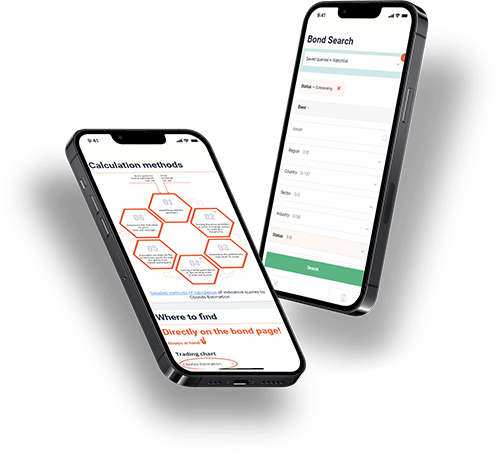By
Konstantin Vasilev Member of the Board of Directors of Cbonds, Ph.D. in Economics
Updated February 14, 2024
What Is Istisna?
Istisna is a type of sale transaction where the buyer places an order with the seller to manufacture certain asset and the sale is completed upon delivery of the asset to the buyer. It operates as a forward contract, where two parties engage in an agreement where one party, known as the manufacturer, commits to producing a specified asset according to the other party’s requirements. The term "Istisna" originates from Arabic word, meaning "asking someone to manufacture," reflecting its fundamental premise of commissioning a manufacturer to produce a particular item.
In an Istisna contract, the buyer outlines specific requirements and specifications for the asset to be produced, while the manufacturer agrees to undertake the construction or manufacturing process within the stipulated terms. Unlike traditional contracts where the asset is readily available for purchase, Istisna transactions occur for assets that are yet to exist, providing flexibility for buyers in acquiring goods tailored to their needs. This unique feature distinguishes Istisna contracts from conventional purchase agreements and makes them an integral part of Islamic finance, particularly in facilitating diverse financing needs across various sectors.

Characteristics of Istisna Contracts
-
Tailored Specifications. One of the key features of Istisna contracts is the requirement for the manufactured asset to meet specific buyer specifications. Unlike ready-made goods available in traditional markets, Istisna transactions involve custom-designed products that cater to the buyer’s unique requirements.
-
Price Determination. While the price of the asset is established at the time of contracting, Istisna agreements allow for flexibility in payment terms. Buyers may opt to defer payment partially or entirely until the completion of the manufacturing process, providing financial flexibility and aligning payments with project milestones.
-
Scheduled Delivery. Istisna contracts mandate a clear timeline for the delivery of the manufactured item. This ensures that both parties have a mutual understanding of the project timeline, enabling effective planning and coordination throughout the manufacturing process.
-
Penalty Clause Inclusion. To mitigate potential risks associated with delays or non-compliance, Istisna contracts may incorporate penalty clauses. These clauses outline the consequences of non-performance or delays, incentivizing timely completion of the manufacturing process and adherence to contractual obligations.
Advantages and Disadvantages of Istisna Contracts
Advantages
-
Meeting Varied Needs. Istisna contracts are versatile and can be applied to a wide range of financing needs, including the construction of houses, infrastructure projects, and technology industries. This flexibility makes them suitable for both public and private sector initiatives.
-
Flexible Payment Options. Buyers benefit from the flexibility of Istisna contracts, as payments can be made in installments linked to project completion, delivery, or other agreed-upon milestones. This flexibility assists buyers with working capital requirements and financial planning.
-
Independent Project Management. Istisna financing allows the buyer to manage the project independently. This autonomy in decision-making and project execution is favored by investors who prefer to retain control over their ventures.
-
Applicability in Islamic Finance. Istisna contracts align with Islamic finance principles, providing Sharia-compliant alternatives for financing projects. Islamic banks commonly utilize Istisna contracts to facilitate transactions while adhering to Islamic financial guidelines.
Disadvantages
-
Price Fluctuation Risks. Determining the price at the time of contracting exposes the buyer to the risks of price fluctuations in the market. Changes in material costs or other economic factors may impact the overall cost of the project.
-
Refinancing Risk. Istisna contracts may be more suitable for construction financing rather than permanent financing. This exposes the project to the risk of refinancing, which could be challenging depending on market conditions and the financial landscape.
Types of Istisna Contracts
The classical Istisna contract involves a straightforward arrangement between two parties—the buyer (mustasni) and the seller/manufacturer (sani). In this type, the customer approaches the manufacturer with a specific request for the construction or manufacturing of a particular asset. The agreement encompasses details such as asset specifications, price, and delivery date. The customer then pays the agreed-upon price either in a lump sum or through installments as per their arrangement. After the manufacturing process is complete, the manufacturer delivers the finished asset to the customer.
Contrary to the simplicity of classical Istisna, the parallel Istisna contract introduces a third party, typically an Islamic bank. This involves two separate contracts. Firstly, the Islamic bank, acting as the seller, enters into an Istisna contract with the customer. The price is determined, usually as the bank’s cost plus a profit margin. Simultaneously, the Islamic bank, as the buyer, enters into another Istisna contract, known as parallel Istisna, with the actual manufacturer or contractor. The bank pays the cost of construction to the contractor, and upon completion, the bank delivers the asset to the customer. This parallel Istisna structure is commonly utilized by Islamic banks, leveraging their financial expertise while ensuring the customer’s requirements are met by skilled manufacturers or contractors.
Bai’ Salam vs. Istisna
Bai’ Salam is a type of forward sale contract in Islamic finance where the buyer pays the price of the goods in advance but receives the goods at a later specified date. Unlike Istisna, which involves the manufacturing or construction of a specific asset, Bai’ Salam contracts can be applied to any commodity, regardless of whether it needs to be manufactured or not. The price in a Bai’ Salam contract must be paid in full at the time of contracting, and the delivery of the goods is deferred to a future date. Once the contract is concluded, it cannot be canceled. Bai’ Salam contracts are often used to facilitate agricultural financing, where farmers receive payment upfront for goods that will be delivered at a later date.
Istisna, on the other hand, is specifically tailored for the manufacturing or construction of a particular asset. It involves two parties—the buyer (mustasni) and the seller/manufacturer (sani)—who agree the production of a specified asset according to the buyer’s requirements. Unlike Bai’ Salam, Istisna contracts allow for flexible payment terms, with the price determined at the time of contracting but not necessarily paid in full upfront. Istisna contracts also include a clear timeline for the delivery of the manufactured item, and they may incorporate penalty clauses for non-performance. Additionally, Istisna contracts can be canceled before the manufacturing process begins, providing some degree of flexibility for the parties involved. Islamic banks often utilize Istisna contracts, particularly the parallel Istisna structure, to finance construction projects and other ventures requiring customized assets.
Applications of Istisna Contracts
Istisna contracts find diverse applications across various sectors, making them a versatile tool in Islamic finance. One prominent application of Istisna contracts is infrastructure development, where they play a crucial role in financing construction projects. Islamic banks and financing institutions often utilize Istisna contracts to facilitate the construction of roads, bridges, and other essential infrastructure projects that contribute to economic development. By employing Istisna contracts, project sponsors can secure the necessary funding to initiate and complete infrastructure ventures, thereby addressing critical societal needs while adhering to Islamic finance principles.
Istisna contracts are extensively employed in the real estate sector, particularly in property development and house financing. Homebuyers seeking Sharia-compliant financing options can benefit from Istisna contracts, which allow for the construction of residential properties according to their specifications. Islamic banks offer Istisna-based financing solutions, enabling individuals to realize their homeownership aspirations while complying with Islamic principles. Istisna contracts can be applied to commercial real estate projects, such as office buildings and shopping complexes, providing tailored financing arrangements to developers and investors following Sharia guidelines.
Harnessing Istisna Contracts in Finance
Harnessing Istisna contracts in finance offers an effective means to address the diverse financing needs of individuals, businesses, and governments while adhering to Islamic principles. One significant aspect of Istisna contracts is their adaptability to various sectors, including manufacturing, construction, and infrastructure development. By leveraging Istisna contracts, Islamic banks and financing institutions can provide customized financing solutions tailored to the specific requirements of clients, thereby fostering economic growth and development.
Furthermore, Istisna contracts contribute to financial inclusion by accommodating a wide range of projects and ventures, including those that may have been previously underserved by conventional financing methods. Whether financing the construction of affordable housing units, supporting small and medium-sized enterprises (SMEs) in their expansion efforts, or funding large-scale infrastructure projects, Istisna contracts offer a Sharia-compliant avenue for accessing capital and realizing strategic objectives. As Islamic finance continues to gain traction globally, the strategic utilization of Istisna contracts holds significant potential in driving sustainable development and fostering equitable access to financial resources across diverse communities and industries.
Bond Screener
Watchlist
Excel Add-in
API





















